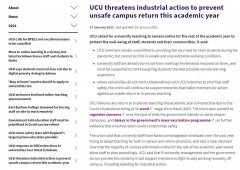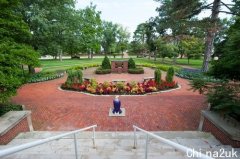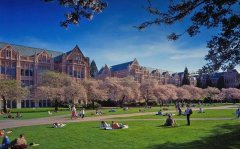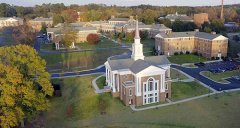英国论坛

University of Surrey(萨里大学)
所在地区:英格兰所在城市:SurreyTIMES排名:12
一键免费快速申请文章正文综述详细专业照片新闻校友录已获Offer学生资料The SNP won the elections in May because voters judged Labour to have performed poorly relative to how they expect the SNP will do. Labour's performance in Holyrood rather than Westminster was a key factor.The SNP won the elections in May because voters judged Labour to have performed poorly relative to how they expect the SNP will do. Labour's performance in Holyrood rather than Westminster was a key factor.
This is one of the key conclusions of the largest study of elections in Scotland since devolution conducted by a team of academics from the Universities of Strathclyde, Lancaster and Sheffield which was published at a seminar at Strathclyde University yesterday (Thursday 20th September).
The main findings included:
Voting no longer follows class lines Voters were more positive about the SNP's likely performance in government than Labour's record Voters felt that the SNP ran a more positive election campaign than Labour and this helped the SNP Although voters rated Alex Salmond more highly than Jack McConnell, there is no evidence that this swung their votes The SNP attracted votes from supporters of independence, but also from those who oppose independence and instead favour more powers for the Scottish ParliamentThe SNP was found to have stronger support among male voters (41% in constituency votes compared with 32% for female voters) and voters aged over 60 (36% compared with 29% for Labour) but trailed Labour by 13% (37% to 24%) among constituency voters aged under 30.
Labour is still seen as the party of the working class but this did not help Labour as fewer voters decide how to vote on the basis of class.
Support for independence declined compared with 2003. The SNP succeeded in attracting the vast bulk of this support but, crucially, also attracted a third of those who favoured 'more powers' for the Scottish Parliament.
Many people who identified themselves as Scottish did not want independence and a large number who viewed themselves as British wanted to see more powers. The relationship between national identity and preferred constitutional option proved, once more, to be complex.
The council tax was almost universally unpopular and so had little impact on vote choice: most Labour voters would prefer a local income tax.
The SNP had a lead over Labour on devolved matters including education, health, crime and transport. Labour enjoyed a slight lead on the economy, but those who believed that the SNP would run Scotland's economy well were much more likely to support the party.
While the related issues of Iraq and Blair's leadership affected voting behaviour, this was a largely Scottish election in which devolved matters were uppermost in voters' minds when they went to vote.
The style of campaigning played a significant part in the outcome with the SNP's campaign perceived to be positive while Labour's was deemed negative. Although Alex Salmond may have contributed to the perception of the SNP as competent, there is no evidence that his lead over Jack McConnell in terms of personal popularity was a significant factor in the SNP's win.
Dr Robert Johns, lecturer in politics at the University of Strathclyde, said: "Our research found that voting today is not very deeply rooted in the social structure, meaning that in 2007 there were plenty of 'floating voters' up for grabs."
"But independence was not the issue that won this election for the SNP. The party also polled quite strongly among voters who want 'more powers'. This indicates that the SNP built a coalition of support: it persuaded people that it can govern under devolution, while retaining very strong support from advocates of independence."
"The key issues, particularly the economy, seem to be those that are more about how the parties will perform, rather than the specific policies and standpoints that they adopt. On balance, voters were rather negative about Labour's performance and fairly optimistic about that of the SNP."
"Indeed, it does seem that a key element of the SNP's success was projecting a positive image. Labour's campaigning strategy was perceived as negative and this looks to have cost it support."
"Few voters -- fewer than in 2003 -- reported finding the ballot paper difficult to fill in. This suggests that few of them were aware of the scale of the problem until after polling day."
















